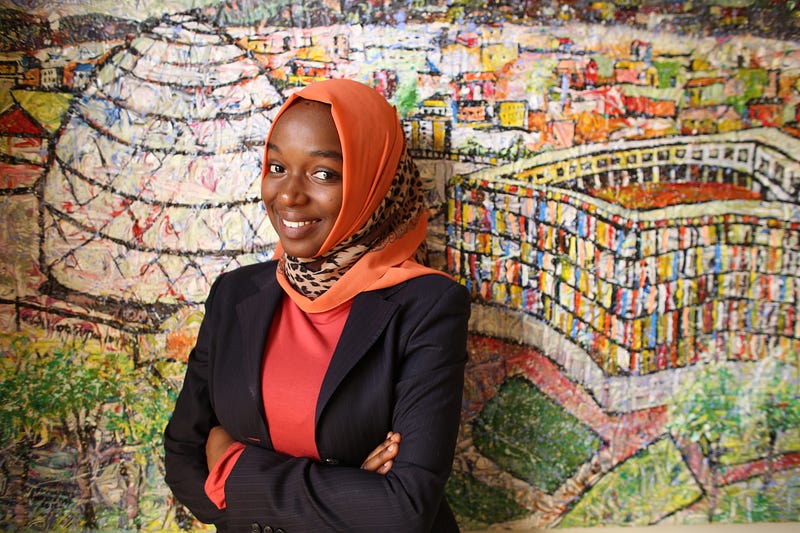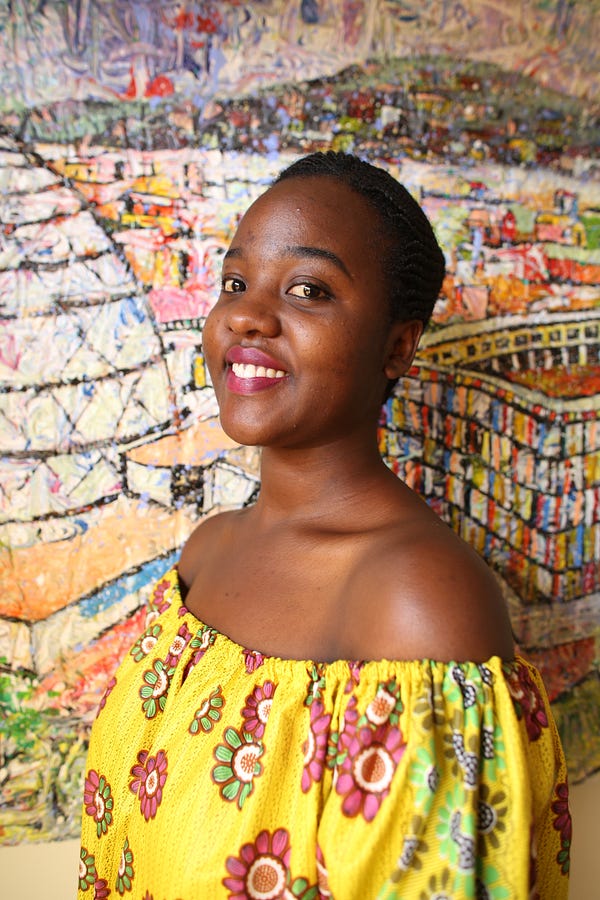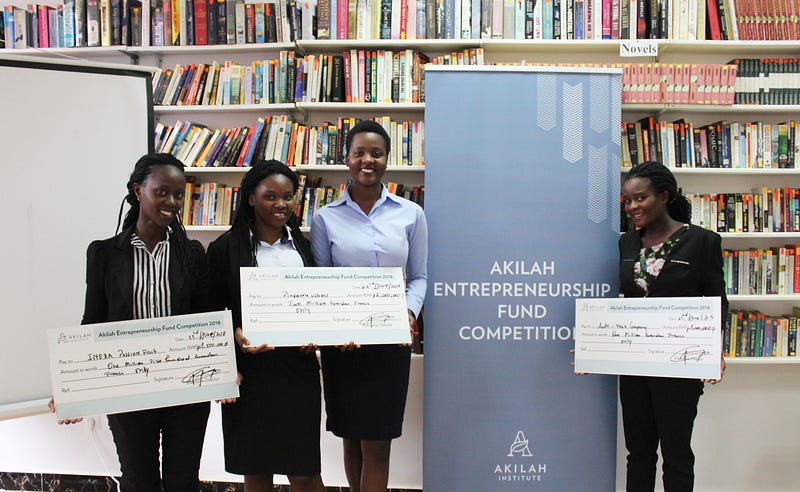She’s My Hero
Post by Karen Sherman, Akilah Institute President

Growing up, Djasmina Mukeshimana, 23, loved to study all things related to technology. A gifted student, she sailed through primary school and was well into secondary when her father left, leaving her mother with seven children to fend for themselves. “It was a bit hard,” Djasmina admits. “My mom had to sacrifice everything so that I could stay in school. This is your future she told me. I’m just putting my hand in it.”
During secondary school, Djasmina studied computer science, but it was only the theory of it. With five computers in a class of 60 students, she rarely got the chance to touch a computer. The boys got to use them first.
Adidja Byukusenge, 24, was also a good student, but her interests were different. She wanted to do something to help others, to start a business perhaps, to change her community. She came to Rwanda from Burundi in August of 1994 when she was just two weeks old, one month after the
genocide ended. “I came with my mom, dad, and three sisters, but my dad passed away when I was three,” Adidja said.
Adidja’s mom never had a chance at an education, which limited her work options, but she was determined to send all her girls to school, to give them the education that she missed. In exchange for allowing her daughters to study at a local nursery school, she used to cultivate land for the school’s owners. She did her best.

Nicole Umuziranenge, 21, was raised in the Northern Province in Rwanda, in the Gicumbi District. A middle child with a sister and brother, Nicole’s father passed away from diabetes while she was still in primary school. He was the main breadwinner for the family. Her mom, who was working as a health care assistant at the time, decided to go back to school and acquire her nursing certificate. She needed to support her kids.
Nicole excelled at school. She liked history and loved to read. In high school she became president of the media club, which gave her the chance to MC events, make school announcements, and deliver the news in assemblies. Still, she was painfully shy and uncomfortable with her English skills (she had been in a Francophone system until high school). “I was so worried that I wouldn’t be able to perform because I had terrible English, and all the courses were in English.” I didn’t want to be the last in my class,” she shared.
What do Djasmina, Adidja, and Nicole have in common, beyond the fact that they are all bright young women being raised by single mothers? All three of them chose to study at the Akilah Institute, Rwanda’s only women’s college. Its unique academic model combines education for sustainable development with 21st -century skills, personalized learning, innovation, and ethical
leadership. Graduates leave ready to embrace the challenges and careers of today and of the future.
At Akilah, Djasmina followed her passion and studied information systems. She just completed a required three-month internship as a data analyst with Kumwe Harvest, a company specializing in post-harvest support to farmers. On the day we met, she received an offer for a full-time position there. “I was so excited and thankful,” Djasmina gushed.
Adidja chose to major in business management and entrepreneurship. She recently placed second in Akilah’s business competition and plans to start a passion fruit company with her 1.5 million RWF award. “My mom used to tell me that she wanted me to become financially independent so that I could help someone like her. After my first harvest in six months I will be able to pay for myself.”
And Nicole? She decided on the program in hospitality management. “The courses in leadership were the best. We were seeing ourselves turn into someone new… discovering ourselves.”

Adidja (far left) and Nicole (second from right) receiving their prizes after coming in first and second place at the AEF Competition in June.
Though she doesn’t consider herself a business woman, Nicole wanted to use her knowledge and skills to create something for evening/weekend students to do during the day, and for graduates who did not yet have jobs. And then an idea hit: Pineapple Ushers; the pineapple being a symbol of hospitality. Her company will offer professional protocol services for the many conventions
hosted in Rwanda. It was her business that beat out Adidja’s and took first prize.
Today, Djasmina, Adidja, and Nicole graduated alongside nearly a hundred other women. Her Excellency Dr. Joyce Banda, the former President of Malawi and the college’s Honorary Chancellor, delivered the keynote address. All three of their mothers were there to cheer them on.
“My mom is so proud,” Adidja said. “She’s my hero.”
Karen Sherman is President of the Akilah Institute. She is the author of the forthcoming book, Brick by Brick: A Real Story About Womanhood and the Gift of Choice.
